Featured
 How to lose America: The death of democracy looks nearer than ever. By Elayne Clift / Salon
How to lose America: The death of democracy looks nearer than ever. By Elayne Clift / Salon
Remember that relief we felt after Biden was elected? That didn’t last long — and darkness is closing in. If you think I am needlessly hyperventilating, consider this: In 1923 Hitler mounted a failed coup. When he failed, his effort was treated leniently. A decade later he was Germany’s dictator. In 2021 Donald Trump inspired a failed coup. It too has been treated leniently by those who say we “need to move on.” Will he, or his appointed alter ego, be our dictator in less than a decade? Read more
Related: Why personality cults and democracy don’t mix. By Brian Klaas
/ Wash Post
Related: Why a GOP House majority would imperil democracy. By Jennifer Rubin / Wash Post
Political / Social
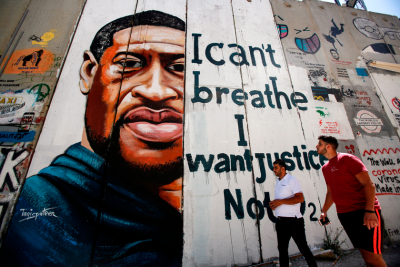 How Black Lives Matter changed the American conversation about Israel and Palestine. By Marya Hannun / Slate
How Black Lives Matter changed the American conversation about Israel and Palestine. By Marya Hannun / Slate
Black-Palestinian solidarity stretches back decades, and from the first days of Black Lives Matter, organizers have explicitly linked these two movements. Philosopher and activist Angela Davishas long acknowledged the deep links between the U.S. prison-industrial complex, racial violence, and Palestinian political incarceration. During the protests in Ferguson, Missouri, after the police killing of Michael Brown in 2014,protesters held signs expressing solidarity with Palestinians and Palestinians took to social media to share instructions for how to treat tear gas. Shown is a A mural of George Floyd seen last summer on Israel’s controversial separation barrier in the occupied West Bank. Read more
 America’s Deadly Domestic Extremism Worst In 24 Years, Reveals New FBI Report. / HuffPost
America’s Deadly Domestic Extremism Worst In 24 Years, Reveals New FBI Report. / HuffPost
Killings by American domestic extremists in 2019 were the worst in the nation in 24 years, according to a chilling new report released by the FBI and the Department of Homeland Security. Of the 32 killings by extremists in five separate attacks in 2019 — the most lethal year for domestic extremist assaults since 1995 — 24 were committed by white supremacists, according to the report. “Gamification” — in which attackers seek to “score” a high “kill count” — “inspired” some of the assaults in 2019, and will likely continue to be a factor in future attacks, the report noted. Read more
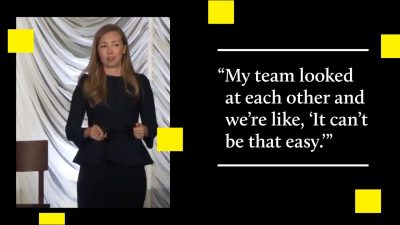 Leaked Video: Dark Money Group Brags About Writing GOP Voter Suppression Bills Across the Country. By Ari Berman and Nick Surgey / Mother Jones
Leaked Video: Dark Money Group Brags About Writing GOP Voter Suppression Bills Across the Country. By Ari Berman and Nick Surgey / Mother Jones
In a private meeting last month with big-money donors, the head of a top conservative group boasted that her outfit had crafted the new voter suppression law in Georgia and was doing the same with similar bills for Republican state legislators across the country. “In some cases, we actually draft them for them,” she said, “or we have a sentinel on our behalf give them the model legislation so it has that grassroots, from-the-bottom-up type of vibe.” Watch here
 Republicans Oppose Kristen Clarke for Top Civil Rights Job at DOJ in Latest Attack on Voting Rights. Amy Goodman / Democracy Now
Republicans Oppose Kristen Clarke for Top Civil Rights Job at DOJ in Latest Attack on Voting Rights. Amy Goodman / Democracy Now
Republican senators in Washington are attempting to block Kristen Clarke, a prominent voting rights advocate, from a top Justice Department position. The Senate Judiciary Committee has deadlocked on an 11-11 vote on whether to move Clarke’s nomination for assistant attorney general of the Justice Department’s Civil Rights Division to the Senate floor for a full vote. Read more
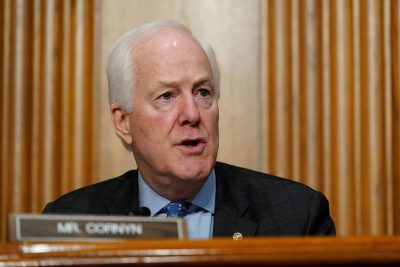 Civics legislation snared in national debate over talking about race in education. By Laura Meckler / Wash Post
Civics legislation snared in national debate over talking about race in education. By Laura Meckler / Wash Post
Students and community activists from New England to the Deep South are demanding their colleges take more ambitious steps to atone for past sins amid the nation’s latest racial reckoning. For Brown University students, the Ivy League college’s next step in its years long quest to atone for its legacy of slavery is clear: Pay up. Nearly two decades after the Providence, Rhode Island, institution launched its much-lauded reckoning, undergraduate students this spring voted overwhelmingly for the university to identify the descendants of slaves that worked on campus and begin paying them reparations. Read more
 After Chauvin Verdict, Black Police Officers Consider What Has Changed. By Brianna Scott / NPR
After Chauvin Verdict, Black Police Officers Consider What Has Changed. By Brianna Scott / NPR
After the murder conviction of Derek Chauvin, Black police officers in America are considering what’s changed and what hasn’t in the year since George Floyd’s death. “There have been very few changes, and I think that’s evidenced by what we continue to see occurring,” says Cheryl Dorsey, a former officer of the Los Angeles Police Department. “I mean, even while all of that was going on with the murder trial of Derek Chauvin, officers still don’t seem to be able to control themselves and give pause when they decide to use deadly force.” Dorsey is one of three former and current officers who spoke with NPR’s Ari Shapiro — first, in June 2020, following Floyd’s killing in Minneapolis, and again this week. Read more
Historical / Cultural
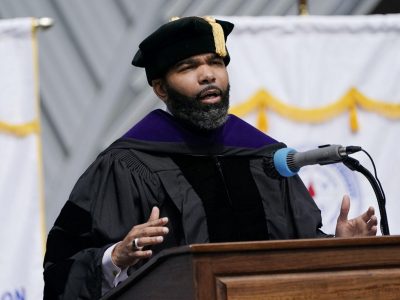 Mayor Apologizes On Behalf Of City For Deadly Shooting On Historically Black Campus. By Emily Wagster Pettus / HuffPost
Mayor Apologizes On Behalf Of City For Deadly Shooting On Historically Black Campus. By Emily Wagster Pettus / HuffPost
The mayor of Mississippi’s capital city and a state senator both apologized Saturday for shootings 51 years ago by city and state police officers that killed two people and injured 12 others on the campus of a historically Black college. Jackson Mayor Chokwe Antar Lumumba and state Sen. Hillman Frazier of Jackson spoke during a graduation ceremony for the Class of 1970 of what was then Jackson State College, now Jackson State University. Read more
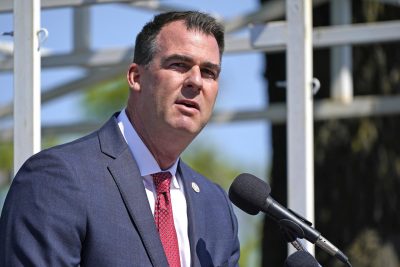 Oklahoma Governor Booted From Tulsa Race Massacre Commission. By Sean Murphy and Terry Wallace / HuffPost
Oklahoma Governor Booted From Tulsa Race Massacre Commission. By Sean Murphy and Terry Wallace / HuffPost
The commission formed to observe the 100th anniversary of the Tulsa Race Massacre announced Friday that it had booted Oklahoma Gov. Kevin Stitt from his seat on the panel a week after he signed a bill outlawing the teaching of some race and racism concepts in public schools. A statement from the commission did not indicate the reason for the parting, and a spokeswoman said the commission had no further comment. However, commission project manager Phil Armstrong this week had sharply criticized the Republican governor for signing a bill into law that prohibits the teaching of so-called critical race theory in Oklahoma schools. Read more
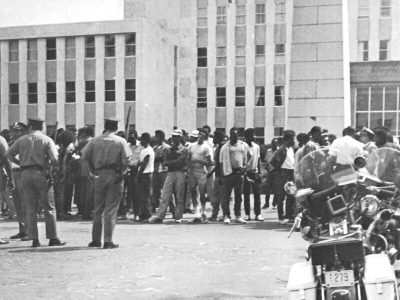 Black Resistance from Augusta to BLM. By John Hayes and Nefertiti Robinson / AAIHS
Black Resistance from Augusta to BLM. By John Hayes and Nefertiti Robinson / AAIHS
When our work began in December 2018, we sought to confront misinformation and erasure surrounding the “riot” of May 11-12, 1970, in Augusta, Georgia, the Deep South city where we live. We were acutely aware of how the term “riot” was used to deny political intent and to erase the substance of Black grievance. We hoped to subvert those connotations, to show that the “riot,” like so many others of the era, was a collective rebellion, inspired by indignant rage at violent injustice. Read more
 The Victims of the Philadelphia MOVE Bombing Continue to Be Erased.
The Victims of the Philadelphia MOVE Bombing Continue to Be Erased.
Charles Avery had barely started marching when police arrested him, forced him into a police vehicle and took him to jail for participating in landmark civil rights protests that helped change the nation in 1963. He spent days in custody and then lived decades haunted by a conviction for the most innocuous of offenses — parading without a permit — that he saw as noble yet others questioned with suspicion. “I had to explain what it was, that it was from Birmingham,” said Avery, 76. “It always came up. ”Yet Avery said he’d do it again all these years later, and he has a message for the thousands of demonstrators who have been arrested nationwide during the months-long uprising over police violence and racism: Keep going. A lifelong mark in the name of justice is worth the trouble. Read more
Sports
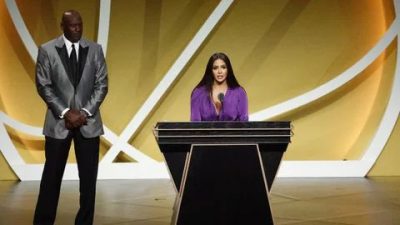 Memories of Kobe Bryant dominate Basketball Hall of Fame inductions. By Ben Golliver / Wash Post
Memories of Kobe Bryant dominate Basketball Hall of Fame inductions. By Ben Golliver / Wash Post
It’s an impossible task, honoring a man’s achievements after his incomprehensible death. More than a year has passed, but time hasn’t been much help. Basketball’s biggest names converged on the Mohegan Sun Arena for the Hall of Fame induction of Kobe Bryant, the headliner of a glittering 2020 class that included NBA stars Tim Duncan and Kevin Garnett, WNBA star Tamika Catchings, FIBA executive Patrick Baumann, NBA coach Rudy Tomjanovich and NCAA coaches Eddie Sutton, Kim Mulkey and Barbara Stevens. Read more
 No Smile, No Trash Talk’: Behind Tim Duncan’s Quiet Excellence.
No Smile, No Trash Talk’: Behind Tim Duncan’s Quiet Excellence.
Tim Duncan stoically spent 19 fundamentally sound seasons allowing his play to speak for him. Nineteen playoff appearances. Fifteen All-Star selections. Five championships. Five total Most Valuable Player Awards, three in the finals, two in the regular season. And this week, he’ll be inducted into the Basketball Hall of Fame in a heralded class alongside Kevin Garnett and the late Kobe Bryant. Read more
Kevin Garnett’s Prep-to-Pros Jump Changed the N.B.A.
Garnett’s impact on the league went far beyond his on-court accomplishments. He showed that a 19-year-old could thrive in the N.B.A., and he influenced the thinking of scouts and executives, most likely easing the transition for others who were drafted immediately after high school, such as Kobe Bryant (1996) and LeBron James (2003). Garnett faced doubts before he was drafted, but over more than 20 years in the league he reset the limits for big men and made a case for the Hall of Fame. Read more
Thousands of retired Black professional football players, their families and supporters are demanding an end to the controversial use of “race-norming” to determine which players are eligible for payouts in the NFL’s $1 billion settlement of brain injury claims, a system experts say is discriminatory. Former Washington running back Ken Jenkins, 60, and his wife Amy Lewis on Friday delivered 50,000 petitions demanding equal treatment for Black players to Senior U.S. District Judge Anita B. Brody in Philadelphia, who is overseeing the massive settlement. Former players who suffer dementia or other diagnoses can be eligible for a payout. Read more
 Seth Curry’s custom kicks promote a wine label dedicated to social change. By Nick Depaula / The Undefeated
Seth Curry’s custom kicks promote a wine label dedicated to social change. By Nick Depaula / The Undefeated
Launched last summer by NBA stars Chris Paul, Dwyane Wade and Carmelo Anthony, The Social Change Fund United was born out of the intent to improve Black lives. Callie Rivers Curry, an executive at Creative Artists Agency, is also a co-founder. “We want to improve Black lives, holistically,” said Rivers Curry. “We’ve divided that into five pillars: arts and educational equity, economic equity, health equity, criminal justice reform, and civic engagement.” Read more
Site Information
Visit our home page for more articles, book/podcast and video favorites. And at the top of this page register your email to receive notification of new editions of Race Inquiry Digest. Click here for earlier Digests.
About Race Inquiry and Race Inquiry Digest. The Digest is published on Mondays and Thursdays.
Use the buttons below to share the Digest in an email, or post to your Facebook, Linkedin or Twitter accounts.
 Majority-Minority Myths. Jake Rosenfeld / Dissent Magazine
Majority-Minority Myths. Jake Rosenfeld / Dissent Magazine The Obamas Are Freed in Their Blackness. By Charles M. Blow / NYT
The Obamas Are Freed in Their Blackness. By Charles M. Blow / NYT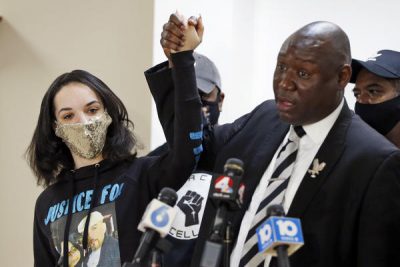 City Of Columbus To Pay $10 Million In Settlement With Family Of Andre Hill. By Becky Sullivan / NPR
City Of Columbus To Pay $10 Million In Settlement With Family Of Andre Hill. By Becky Sullivan / NPR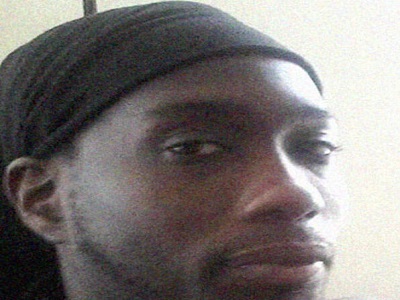 How a Genetic Trait in Black People Can Give the Police Cover.
How a Genetic Trait in Black People Can Give the Police Cover. 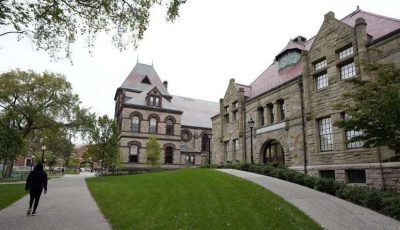 Colleges pushed anew for reparations for slavery, racism. By Philip Marcelo / AP and ABC News
Colleges pushed anew for reparations for slavery, racism. By Philip Marcelo / AP and ABC News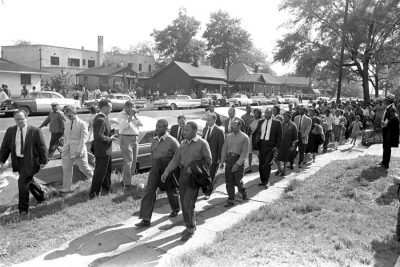 ‘Foot soldiers’ of Birmingham to BLM: ‘Keep on keeping on.’ By Jay Reeves / AP and ABC News
‘Foot soldiers’ of Birmingham to BLM: ‘Keep on keeping on.’ By Jay Reeves / AP and ABC News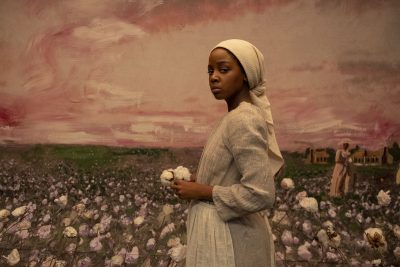 The Underground Railroad review: A towering miniseries. By Emily VanDerWerf /Vox
The Underground Railroad review: A towering miniseries. By Emily VanDerWerf /Vox
 Retired Black players say NFL brain-injury payouts show bias. By Matyclaire Dale and Michelle R. Smith / AP News
Retired Black players say NFL brain-injury payouts show bias. By Matyclaire Dale and Michelle R. Smith / AP News